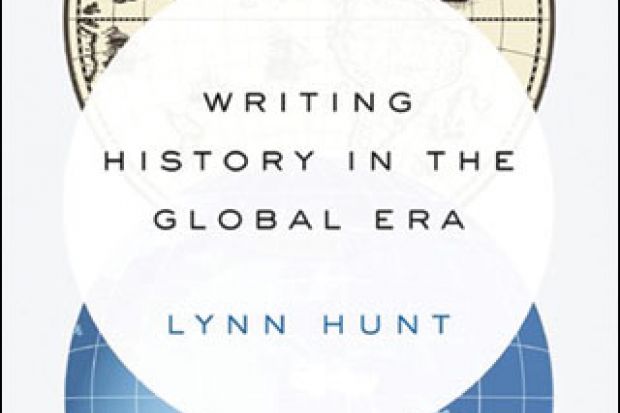Lynn Hunt is a senior US historian and former president of the American Historical Association. From a beginning in French micro-history, she has regularly explored history as a discipline, most notably in Telling the Truth About History, published in 1994 and written jointly with Joyce Appleby and Margaret Jacob. In her latest book, Hunt sets out alone to measure the state of history; a subject which, she asserts on her first page, “is in crisis and not just one of university budgets”. She explains further that what had seemed the pre-eminence, which she had once welcomed, of cultural theory as a ruling paradigm in history writing has now run its course, just as in previous generations the rule of political and then social history had failed. So, she asks, “is globalization the new theory that will invigorate history?”
In a book that is surely destined to become required reading in many postgraduate courses in “history method”, she pursues her question through four brief chapters. In the first she relates the rise and fall of cultural history. In the second she contends that globalisation (somehow defined) has “filled the ideological vacuum” caused by the end of the Cold War, or 1990 and all that, if you will. In a third she examines the meaning and purpose of “self” and “society”, the “essential categories of history writing” that she believes are “undergoing top to bottom renovation”. Finally she wonders whether she can offer a new paradigm, although in the end she pulls back from such grand ambition to conclude worthily that “history writing in the global era can only be a collaborative form of inquiry, whether between types of approach or between scholars from different parts of the world”.
Hunt’s book is composed in short sentences of serviceable prose, although with a weakness for tautology (end point, moment in time, over the course of, up until, and many more). She eschews irony, elegance and wit, and high moral purpose reigns. So, too, more praiseworthily, does a remarkable intellectual span, both within history and into many another disciplines. Readers will find her on due occasion focusing on the historiographical significance of rhubarb or ostrich feathers and their sales, as well as analysing the latest philosophical developments in theology, economics and neurological theory. Name any major modern theorist in the social sciences (except Milton Friedman, Francis Fukuyama and Samuel Huntington) and you will find expert commentary on their works. In such analysis, Hunt is constantly alert to the charge of being too Eurocentric or “Western” in her own thought. Pressing familiar borders still further, her examination of how environmental change might affect academic thought leads her to highlight the “almost 99%” sharing of DNA between humans and bonobos and others of the ape family, without ever quite suggesting that we can yet embrace animals’ understanding of the meaning of the passage of time.
Occasionally a reader, sceptical of the state of the world under the presidency of Barack Obama, may gag at Hunt’s palpable straining for good. But such querulousness should undoubtedly be set aside. Hunt has published a fine book. In the US and beyond, the pages of Writing History in the Global Era will virtuously underpin a thousand, thousand doctorates.
Writing History in the Global Era
By Lynn Hunt
W. W. Norton, 208pp, £17.99
ISBN 9780393239249
Published 28 October 2014
Register to continue
Why register?
- Registration is free and only takes a moment
- Once registered, you can read 3 articles a month
- Sign up for our newsletter
Subscribe
Or subscribe for unlimited access to:
- Unlimited access to news, views, insights & reviews
- Digital editions
- Digital access to THE’s university and college rankings analysis
Already registered or a current subscriber? Login





